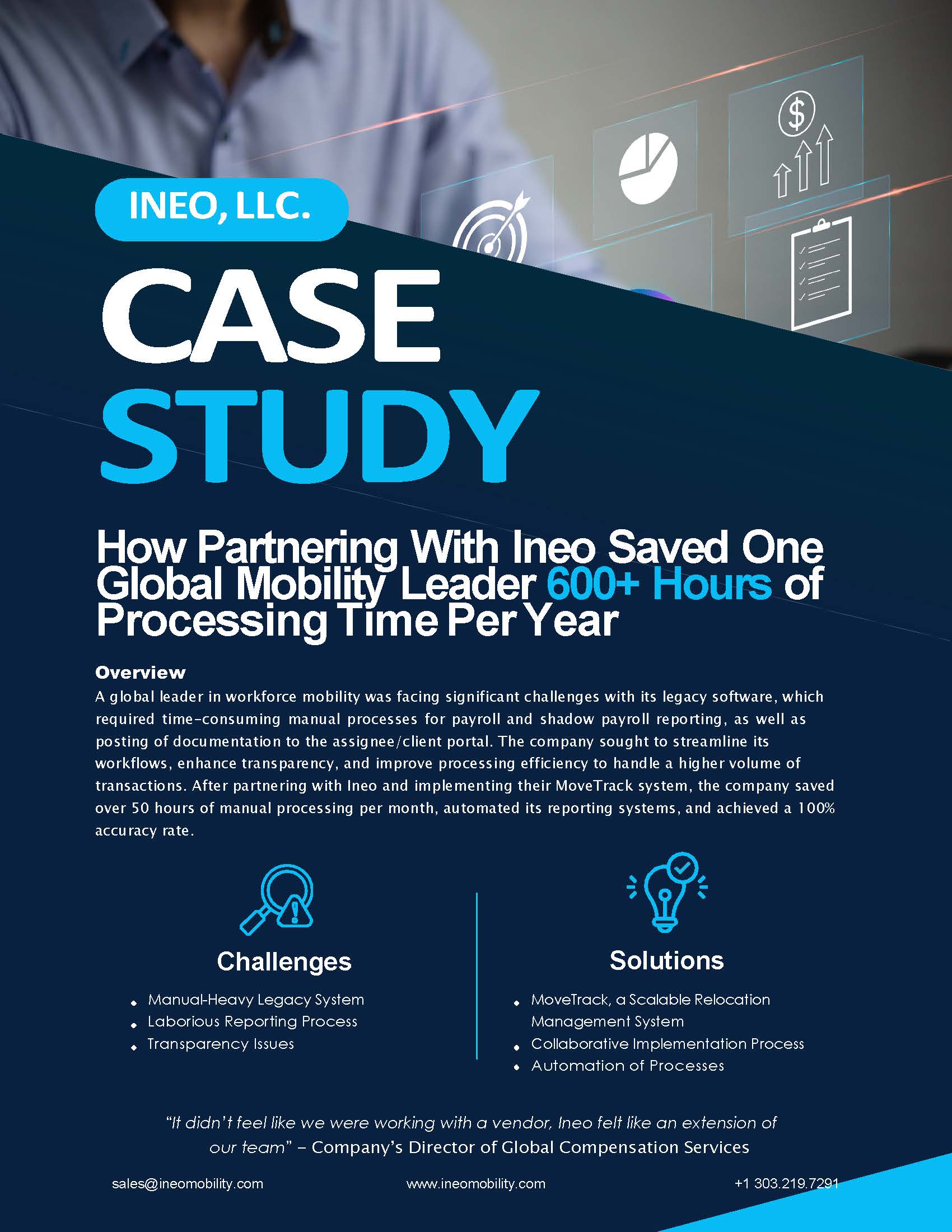The Implications of Tax “Whole” vs. “Company Income Only”

When it comes to a company’s gross-up and tax reconciliation policy, company culture and talent management philosophy regarding tax protection for transferees and assignees are the key drivers of the methodology chosen – to either tax “whole” or “company income only” in their overall relocation policy.
The industry’s best – and most common – practice is to calculate the initial gross-up or tax assistance for the employee based on company income only. If the employee feels they have not been adequately tax protected adequately, a second gross-up audit or tax reconciliation is performed based on the employee’s actual tax return. Whether to consider the employee’s company income – versus total tax return income – when performing the gross-up is 100% a company policy decision. The reason leading companies consider total tax return income is that the average transferee is under grossed-up by thousands of dollars, and therefore potentially incurring several thousands of dollars of out of pocket additional tax expenses. A majority of companies find that scenario to be a talent management nightmare, as negative financial surprises do not a satisfied employee make!
Generally speaking, while most employees who file as “single” are grossed-up adequately, those whose company salary and taxable relocation expenses combine to push their total income over $175,000 typically need a gross-up audit. The same holds true for married employees who relocate with a non-working spouse. Relocated employees who have a working spouse and combined incomes over $250,000 are particularly in need of an audit. Without a gross-up audit and tax reconciliation, these individuals typically owe well over $10,000 in additional taxes because taxable moving expenses have been added to their W-2’s and their company’s initial gross-up was based on company income only.
There several reasons why relocated employees might owe extra federal, state and/or local taxes after taxable expenses have been added to their W-2: Among them:
- Alternative Minimum Tax (AMT) trigger (average impact between $0 to $10,000+)
- Lost value – some or all – of personal exemptions (average impact between $0 to $12,000+)
- Lost value – some or all – of itemized deductions (average impact between $0 to $2,500+)
Increase in Medicare tax (average impact between $ to $2,000+) - Lost tax credits, e.g., child tax, education and student loan credits (average impact between $0 to $5,000+). Lost tax credits for tax year 2017 and beyond could be a big issue based on proposed tax law changes under discussion by the current administration.
- Moved into a higher tax bracket (average impact between $0 to $15,000+)
- Lost certain state tax credits or simply obligated to pay more in state taxes due to multi-state taxation tax filing requirements (average impact between $0 to $10,000)
If a company calculates the gross-up based only on company income the out-of-pocket tax burden for the employee can be significant. This is important to understand and to analyze what impact this decision could have on morale and retention. In such scenarios, advance communication is essential. These companies should inform their employees to budget anywhere from a few thousand dollars to well over $50,000 for high income earners. Employees are well served to engage a relocation tax expert in advance of their move in order to mitigate risk, avoid surprises, and manage expectations.
With talent management a key element of overall company success, many companies today perform gross-up audits and tax reconciliations for 100% of their domestic moves. Still others only perform audits for those employees who proactively ask. But overall the trend is toward keeping the employee “whole.”
Ultimately, this is a policy issue, not a compliance issue. It’s important for companies to understand the tax implications for the relocating employee when setting tax “whole” versus “company income only” gross-up policy.
Global Mobility Resources
Learn more about what’s going on at Ineo and insights into the complex world of global mobility from the industry’s top thought leaders and innovators.
Request A Demo
Whether you are new to the world of global mobility or you’ve been in the business for a while, Ineo is here to assist you.
The best way to learn how Ineo’s global mobility software can help your company revolutionize your global mobility program and support your business strategy is to see it in a demo.
Fill out this form to get started today.
Get Started






